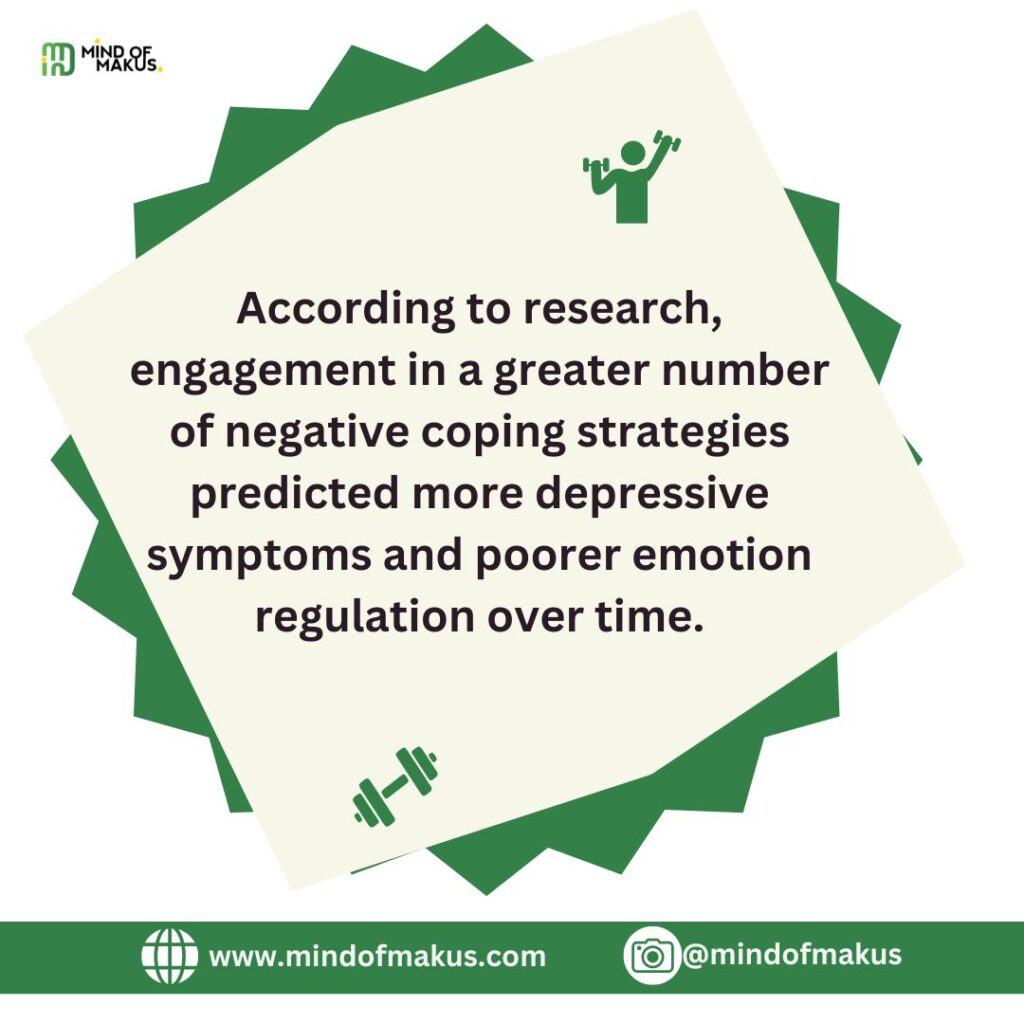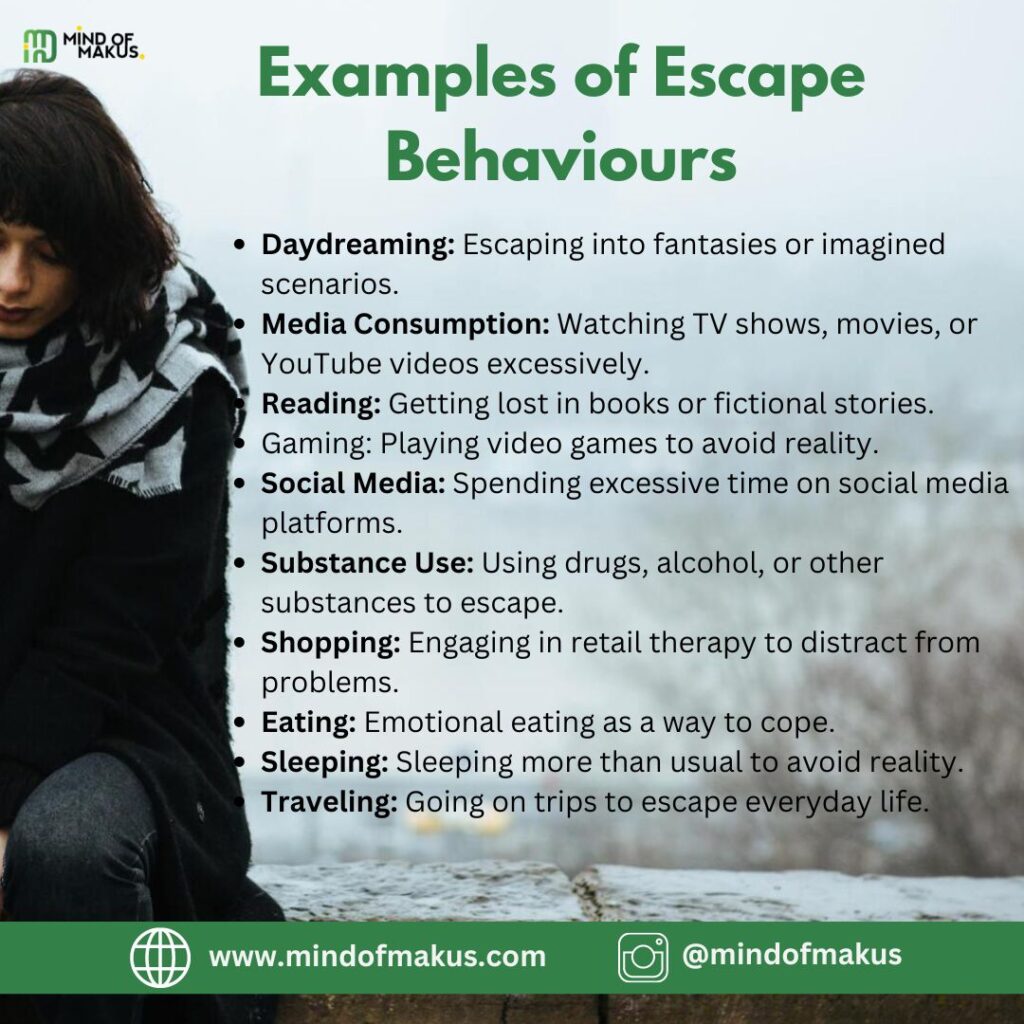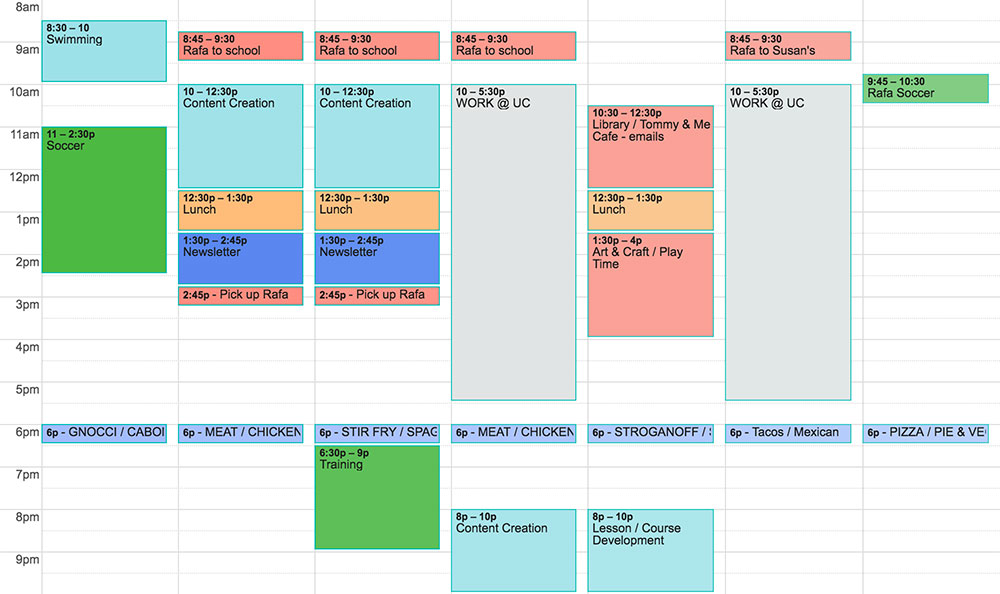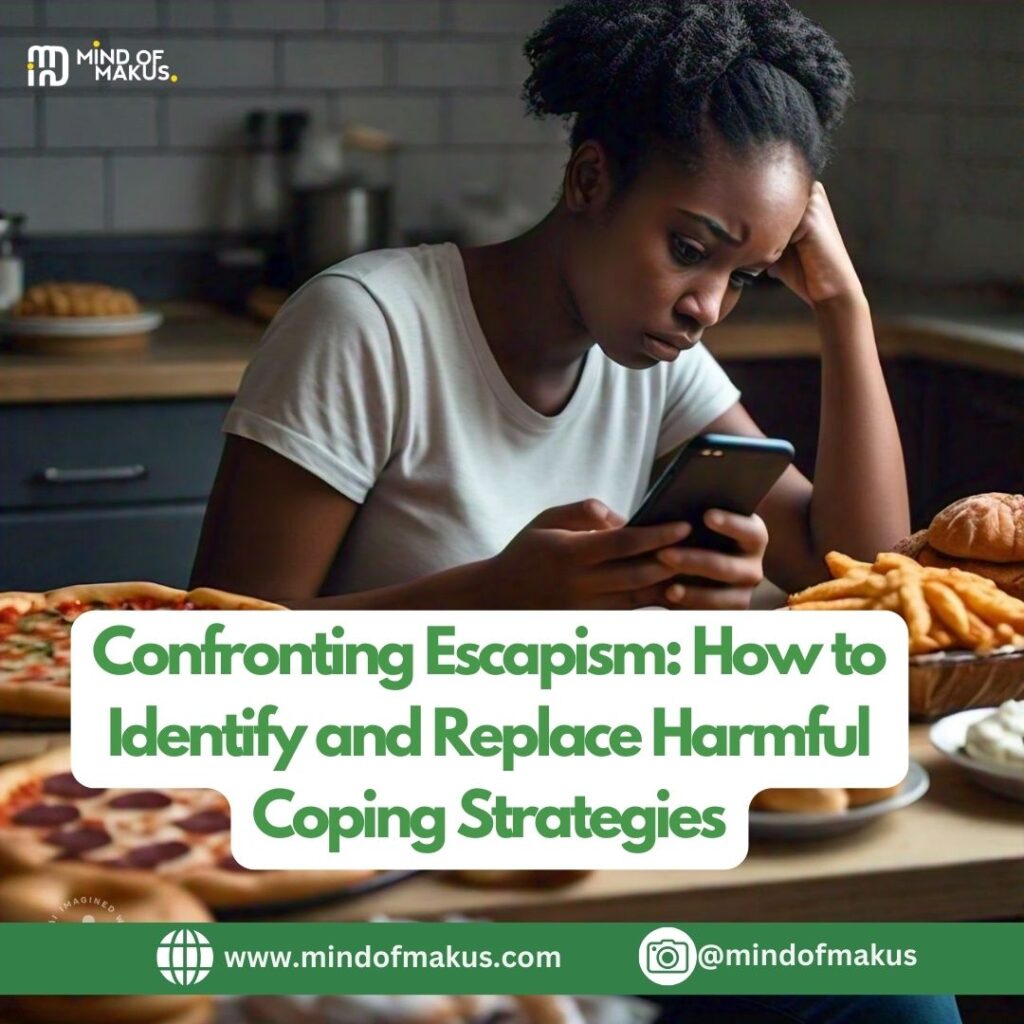Hi dear friend,
It’s a lovely new month and an opportunity to do exciting things. I wish you a healthy and successful month ahead. For those of us who are starting new jobs this month, may we be favored in new spaces.
In our fast-paced and often stressful world, it’s not uncommon to seek a break from reality. While everyone needs a way to unwind and recharge, sometimes these escapes can become unhealthy coping mechanisms, leading to a cycle of avoidance and potentially harmful behaviours.


According to research, engagement in a greater number of negative coping strategies predicted more depressive symptoms and poorer emotion regulation over time.
I want to explore the concept of escapism, how to recognize when it becomes destructive, and ways to address and replace these behaviours with healthier coping strategies.
I have found myself escaping into my phone after a stressful day, not wanting to talk to anyone and just seeking out emotionally numb experiences, or even going straight for a decadent carbohydrate feast or a sugar high.
These things are not new, we just have to realize them and address the underlying issues and redirect that craving to more positive pursuits.


Understanding Escapism
Escapism refers to the tendency to seek distraction and relief from unpleasant realities, often through various forms of entertainment, substance use, or other activities.
While occasional escapism is a normal part of life, providing temporary relief from stress or boredom, it becomes problematic when it is used excessively or as a primary way to cope with life’s challenges.
Recognizing it
Destructive coping mechanisms can take many forms, but they all share the common goal of avoiding difficult emotions or situations. Here are some common signs that escapism may be becoming unhealthy:


1. Excessive Use of Media or Technology
Spending excessive time on social media, binge-watching TV shows, or playing video games for long hours can indicate a desire to avoid real-life responsibilities or emotions, avoiding human connection and vulnerability.
2. Substance Abuse
Turning to alcohol, drugs, or other substances to cope with stress or emotions is a dangerous form of escapism that can lead to addiction, chronic health conditions, poverty and loss of social connections with loved ones.
3. Overeating or Undereating
– Using food as a way to cope with emotions, whether through binge eating or extreme dieting, can be a sign of emotional avoidance and a harmful coping mechanism that has closely associated physical and mental health problems.
4. Procrastination and Avoidance
Avoiding responsibilities, work, or important tasks by engaging in distractions can lead to increased stress and a sense of being overwhelmed. We can often find ourselves feeling burnout from the constant pressure when we haven’t planned properly for the important things in our lives. That feeling of always being a disappointment to the people who depend on you to be reliable.
5. Isolation
Withdrawing from social interactions and isolating oneself can be a way to escape from social pressures or emotional challenges, but it can also exacerbate feelings of loneliness and depression, making it seem much harder to go back and reattempt building relationships. Soon enough some people find themselves with no one to call in an emergency or when they need someone to talk to.


The Impact
While these behaviours may provide temporary relief, they often lead to negative consequences in the long run.
The short term relief is similar to what you get when you are lactose intolerant but cannot resist that ice cream in the park…. You spend the next 3 hours swearing against all cows in the vicinity.hahahaha.
Destructive escapism can interfere with daily functioning, damage relationships, and worsen mental and physical health. Like a dripping tap, the house soon floods and you may not be able to quick fix your way to a solution.
When we avoid the underlying issues, we miss the opportunity to develop healthier coping mechanisms and address the root causes of their distress. This is not an opportunity you may get again and giving yourself the gift of overcoming hard things is always a good vote of confidence in yourself.
What can we do?
1. Acknowledge the Problem
The first step in addressing destructive escapism is recognizing and acknowledging the behavior. Reflect on how often and why you turn to these coping mechanisms. Are you avoiding specific feelings or situations?
2. Identify Triggers
Identify the triggers that lead you to engage in escapism. Understanding what prompts these behaviors can help you develop healthier responses.
3. Seek Support
– Reach out for support from friends, family, or a mental health professional. Talking about your struggles and getting guidance can provide valuable insights and encouragement.
4. Develop Healthy Coping Strategies
– Replace destructive coping mechanisms with healthier alternatives. Some effective strategies include:
– Physical Activity: Exercise can reduce stress and improve mood, providing a healthy outlet for emotions.
– Mindfulness and Relaxation Techniques: Practices like meditation, deep breathing, and yoga can help you stay present and manage stress.
– Creative Expression: Engage in creative activities like drawing, writing, or playing music to express emotions in a constructive way.
– Social Connections: Foster meaningful connections with others to combat isolation and build a support network.
Subscribe to My Newsletter
5. Set Realistic Goals
Set realistic and achievable goals for addressing escapism. For example, limit screen time, reduce alcohol consumption, or schedule regular social interactions. Instead of saying you will stop, aim for reduction, put alarms and sticky notes to remind you.
6. Practice Self-Compassion
Be kind to yourself as you work to change these behaviours. It’s normal to struggle with letting go of familiar coping mechanisms, and progress may be gradual. Celebrate small victories along the way.
7. Professional Help
If destructive escapism is significantly impacting your life, consider seeking professional help. Therapists and counsellors can offer specialized support and strategies to help you overcome these challenges. They are good accountability partners too. This really helped me when I wanted to become more active and had a fear of gyms and the pressure to know what to do with all the equipment. I got a personal coach who helped me build that confidence.


Dear friend, these things are important, let’s not ignore them.
When we excessively lean on escapism, we learn a new habit and get entrenched in the opposite of what we want to be. Don’t be the master of the opposite of your best self, jump out today, start making the moves.
Recognizing these behaviours and addressing them with healthier alternatives is crucial for improving mental and emotional well-being. By developing healthier coping strategies and seeking support, you can break the cycle of avoidance and face life’s challenges with resilience and strength.
You can Support My Work
Remember, it’s okay to take a break from reality, but finding balance and addressing underlying issues will lead to a more fulfilling and healthy life. If you or someone you know is struggling with destructive escapism, know that help is available, and positive change is possible.
Schedule rest into your day/calendar so that you don’t need to numb yourself when you run low in energy. Keep your work week varied and exciting with things you enjoy doing.
Do you remember the last time you escaped without escaping? What healthy coping strategies have worked for you? Share your thoughts and experiences in the comments below. Let’s support each other in finding healthier ways to cope with life’s challenges.
Until next time, stay authentic,
Stay resilient, and continue to honour your needs.
Live wholeheartedly,
Amaka
2 Cor 3:2(MSG)
You yourselves are all the endorsement we need. Your very lives are a letter that anyone can read by just looking at you. Christ himself wrote it—not with ink, but with God’s living Spirit; not chiseled into stone, but carved into human lives—and we publish it.



